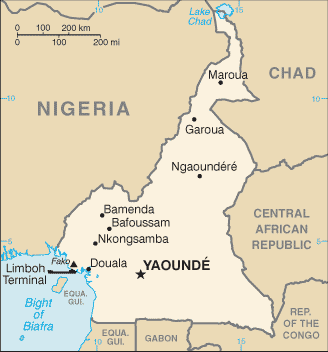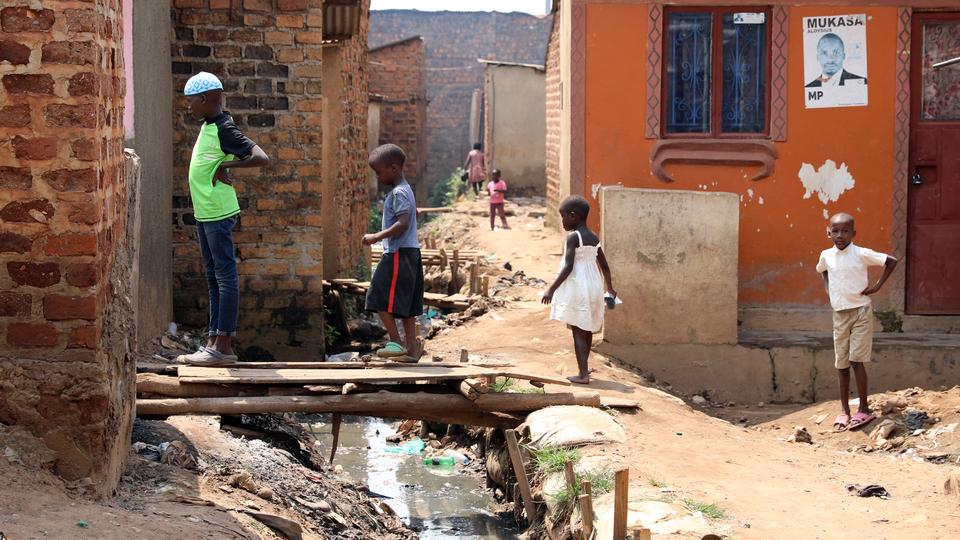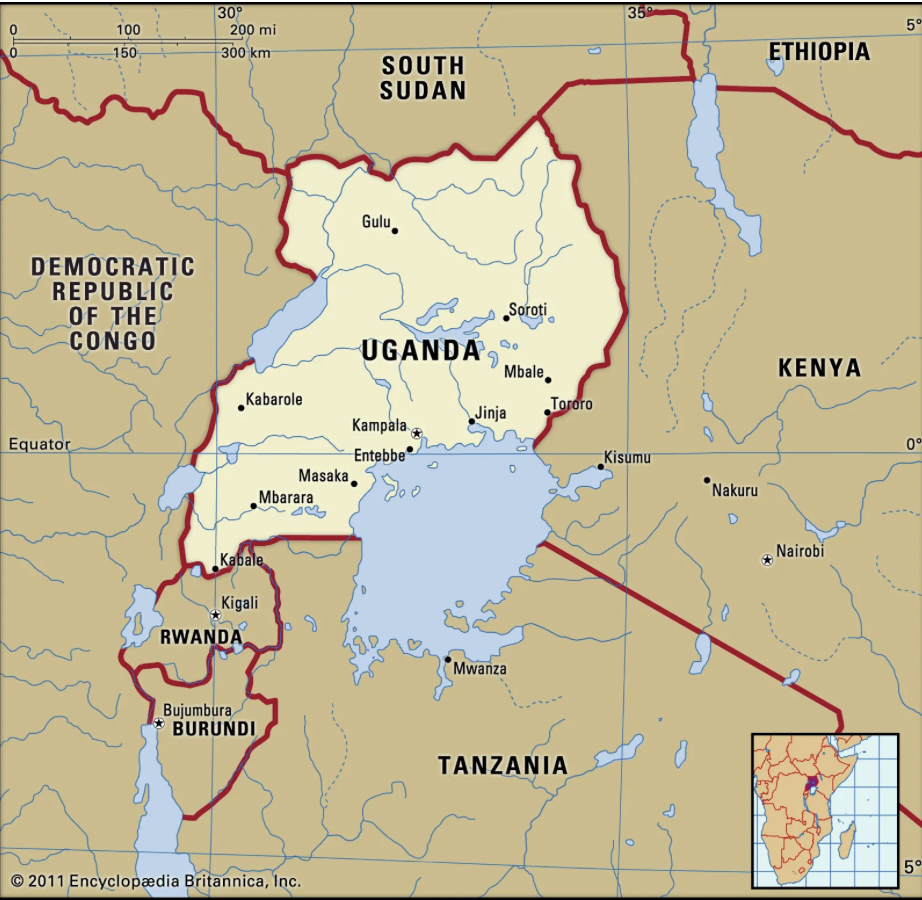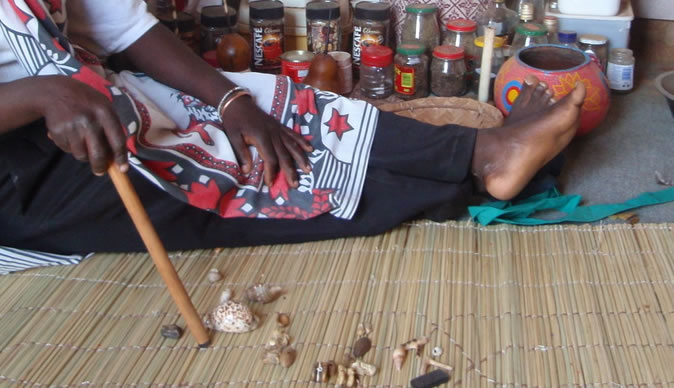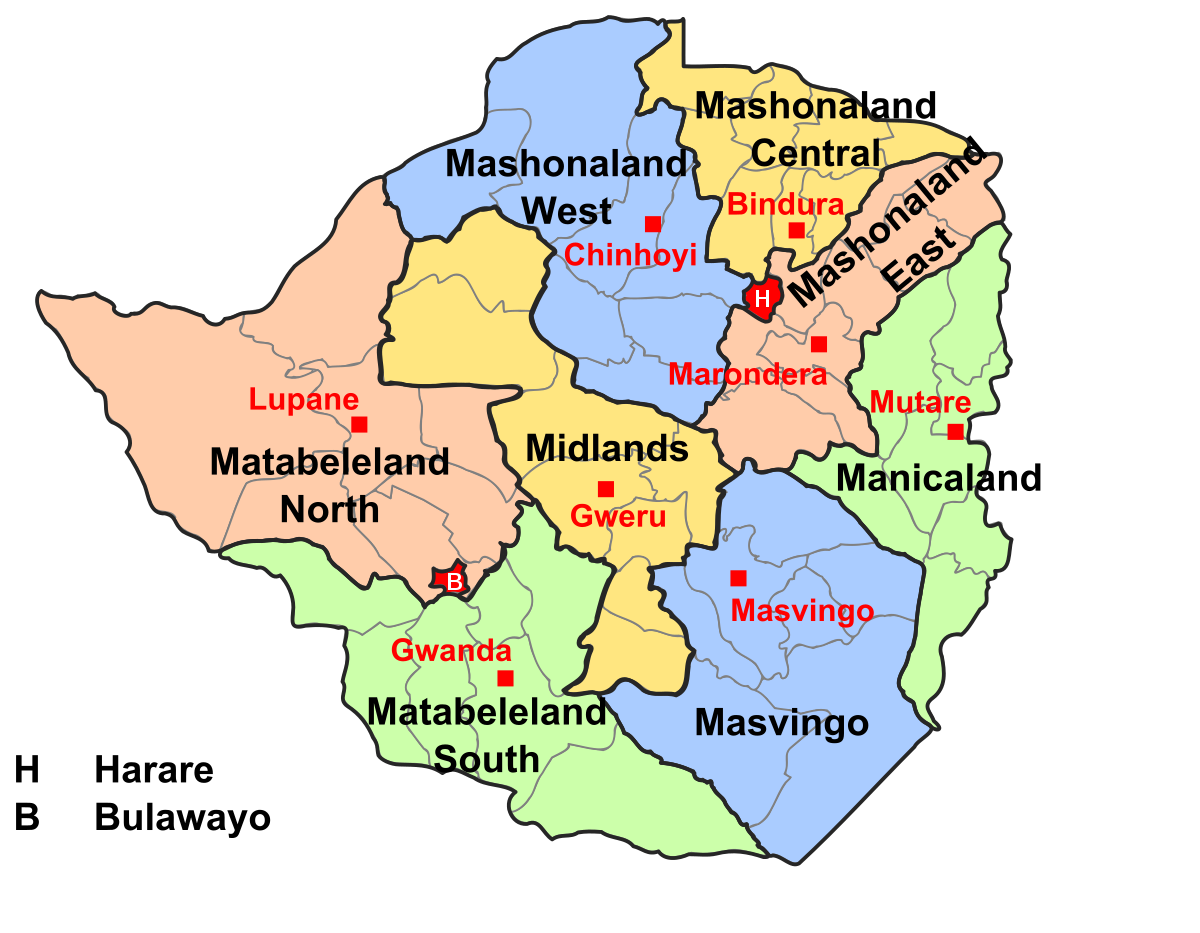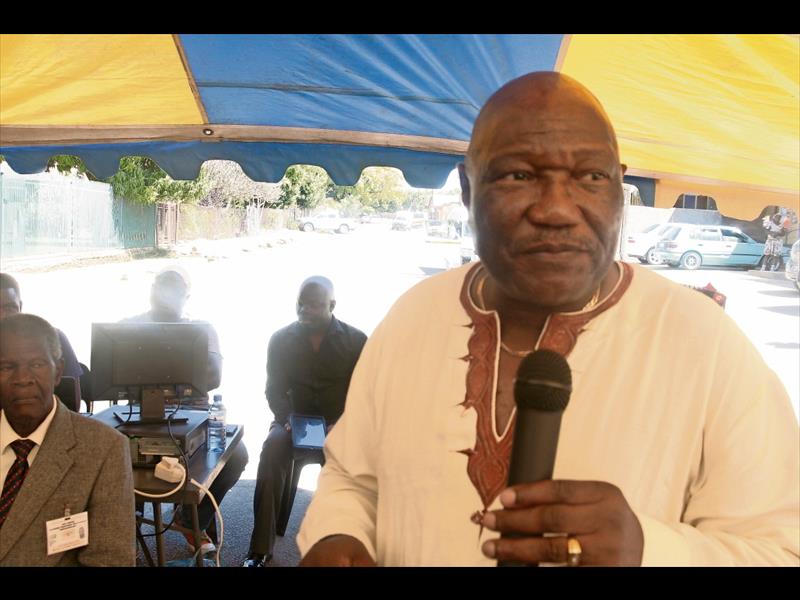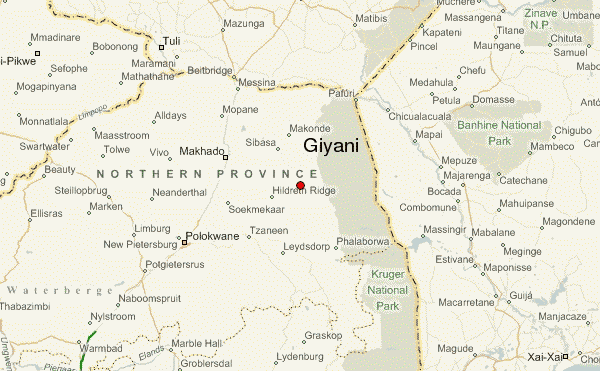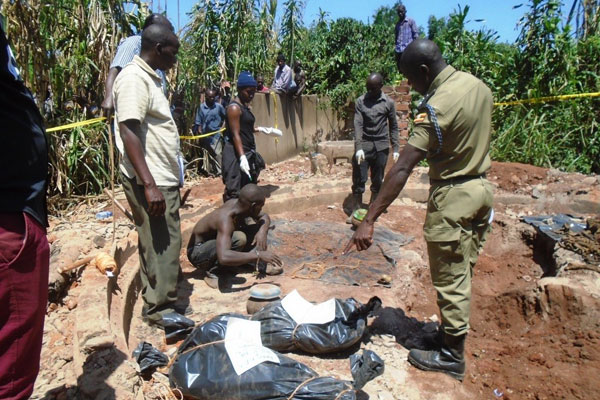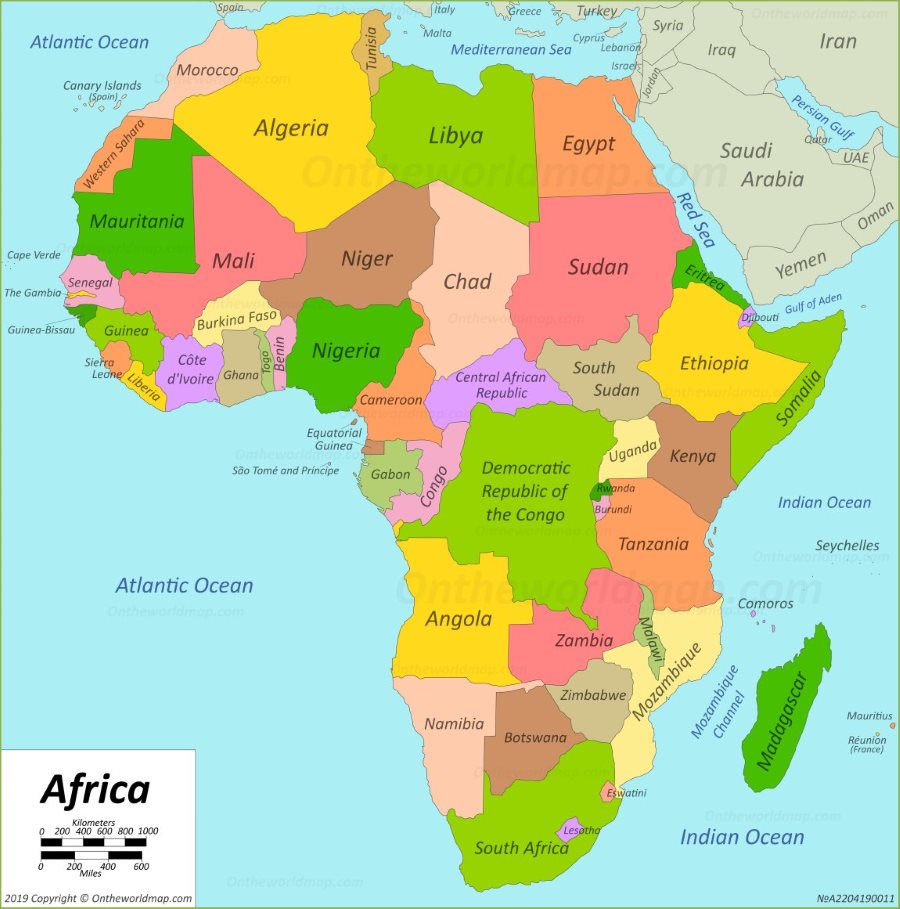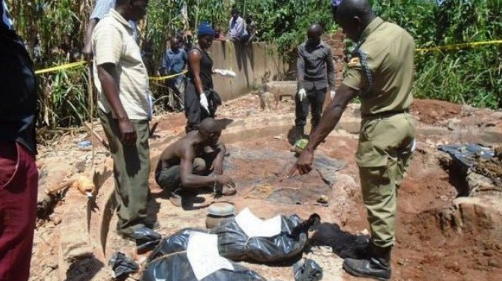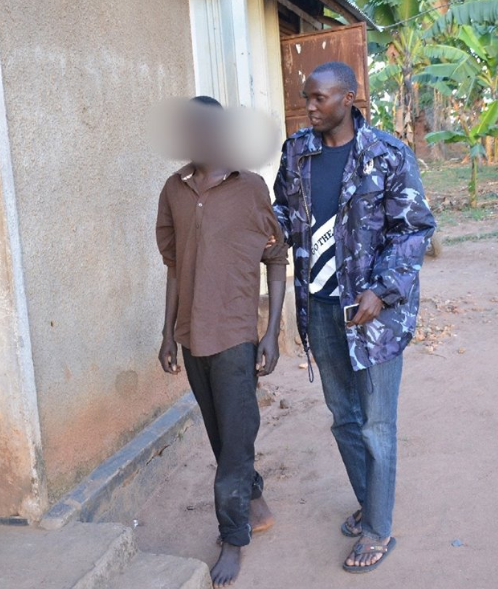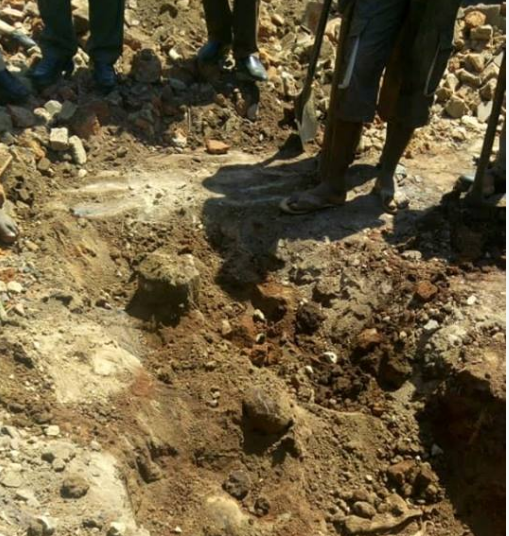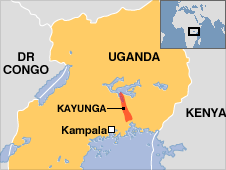The two articles reproduced here date from 2013, hence the reported cases of ritual killing are no recent ones. Be that as it may, I believe they are authentic and the reported cases are genuine.
Late 2012 the population of Yaoundé, the capital of Cameroon, was terrified after the disappearance of 18 young women and the subsequent discovery of their mutilated bodies. In September 2013, parliamentary elections were held in Cameroon. They were originally scheduled for July 2012, but were repeatedly postponed: February 2013, July 2013, and finally held on September 30, 2013, alongside local elections. It has never been proven that the wave of ritual killings in 2012 was linked to the planned elections, but observers of ritualistic murders in Africa point to the fact that often there is an increase in ritual killings during election campaigns. Also, as one of the articles states, ritual killings were common in Cameroon until the 1970s though more recently the number of ritualistic murders has decreased. (webmaster FVDK)

Ritual Killings: 18 Young Women Found Murdered With Brains, Eyes, Genitals Missing
Published on January 23, 2013
By: Naij.com
A series of ritual killings of young women in the West African nation of Cameroon has caused panic in the capital city Yaoundé.
Families are now refusing to let their daughters go out after a spate of gruesome killings of young girls who were abducted by the drivers of motorcycle taxis before being murdered and dismembered.
Police have found 18 mutilated bodies on the streets of the capital in the past two weeks, five of them outside a nursery school, and all are believed to be linked to occult rituals.
In some parts of the country traditional healers believe that body parts including eyes, genitals, breasts and tongues have mystical powers, with many believing they bring riches and other good fortune. Others believe that performing a human sacrifice will bring good luck.
Ritual killings were common in Cameroon until the 1970s but as education spread, the number of murders decreased.
Now families fear the practice is coming back, with the latest wave of killings causing near-hysteria in the capital city.
This week, the sister of a 17-year-old girl whose corpse was found on Friday outside a nursery school, minus the genitals, tongue, eyes, hair and breasts, wrote to Cameroon President Paul Biya demanding action to prevent further killings.
Deborah Ngoh Tonye Epouse Mvaebeme said her sister, Michele Mbala Mvogo, a student at the government bilingual High School Yaoundé was abducted three days before her body was found outside a nursery school. She accused the city’s commonly-used motorcycle taxi drivers of facilitating the murder, and said the government had failed to do enough to protect the victims, who were from the poverty-stricken neighbourhoods of Mimboman and Biteng.
One local said: ‘The moto-taxi drivers are the assassins’ accomplices, and their targets are girls aged 16-25 who get the taxis after nightfall. For a large sum of money, these girls are delivered to men in the suburbs who do the rest.’
The head of a Mimboman nursery school told afrik.com how she found one of the bodies outside her school.
She said: ‘It was a strong smell of rotting that drew my attention, so I decided to do a tour of the school. ‘That’s how I found, behind one classroom, a body of a young girl in an advanced state of decomposition, with her underwear placed on her feet, before my very eyes.’
Families in the neighbourhood are said to be in a state of hysteria, banning their girls from taking motorbike taxis and keeping them indoors after dark.
Communication minister Tchiroma Bakary said: ‘Ritual sacrifices with a demoniac connotation are unacceptable and intolerable, and the government will do all it can to put a stop to it.’
Ngoh Tonye, whose sister was murdered, told CNN: ‘There is laxity in the forces in ensuring security in the capital.’
The bodies of the five most recent victims were identified yesterday, according to a State security official who said most of the victims were high school students aged 15-26.
Two men have been arrested in connection with the killings but so far no charges have been brought.
The Cameroon capital, which has a population of just over two million, is in a state of distress with families staying behind locked doors as soon as darkness falls. Police warn pedestrians to walk in groups at all times and have cracked down on local bars frequented by criminals, shutting them down in the dozens. Vigilante groups of young men guard the streets at night and hunt for the killers, as the people of Yaoundé say the police are not doing enough to keep the city safe.
The new wave of gruesome killings in the capital has also seen dozens of complaints about mutilated corpses in the mortuaries of Yaoundé’s public hospitals, according to Health Minister André Mama Fouda.
Source:
Ritual Killings: 18 Young Women Found Murdered With Brains, Eyes, Genitals Missing

Yaoundé, capital of Cameroon
Related article:
Wave of Ritual Killings Spark Panic in Cameroon, Increase Safety Measures
Published: 28th February 2013, 14:15 GMT+11
By: Global Press Institute – Nakinti Nofuru
BAMENDA, CAMEROON When Sarah Ewang, 41, heard about the homicide and dismemberment of 18 young women in Yaoundé, the capital of Cameroon, she cried and prayed to God to give strength to the victims families.
Ewang, a jewelry trader in Bamenda, the capital of the Northwest region, can understand the pain the girls endured during the moments before they were slain by alleged ritual killers. I came so close with ritual killers, she says. God delivered me from the hands of those evil men.
During 2005, Ewang traveled from Bamenda to Douala, the capital of the Littoral region, to buy jewelry to restock her shop. In Douala, she entered a taxi already occupied by two men, who appeared to be passengers. As they drove, another woman stopped the taxi. Moments after picking up the second woman, one of the men in the car pointed a gun at them and ordered them to keep quiet. I tried to shout, but one of the men slapped me very hard, Ewang says.
The taxi took a sharp turn off the main road and drove for more than an hour into an isolated forest. Eventually, the car stopped at a strange-looking hut, constructed of sticks, grass and old bags. I knew my life was coming to an end, Ewang says, and the next thing I thought of was my 3-months-old baby.
She says she cried out and received a second slap from the man carrying the gun, causing her to pass out. When she awoke, she discovered that they had removed her from the car. The driver and one of the men walked into the hut, but the man with the gun remained with them. She says they were ritual killers. They didnt request for anything from us, Ewang says, so they didnt look like armed robbers or thieves.
Finally, the two men emerged, along with four other men carrying cutlasses. Desperate, Ewang cried aloud in her local dialect, Bakossi. Oh my God, I will die and leave my 3-months-old daughter to who? she says she cried. Oh God, please come and help me.
Immediately after she spoke, the man with the gun walked up to her and looked her in her eyes but did not say a word, she says. He then led the other men back into the hut, where they remained for more than 45 minutes. Eventually, the man with the gun returned and asked her and the other woman to get into the car.
The men returned them to Douala and told them to walk away without causing any alarm. As they walked away, the man with the gun spoke. Go and look after your 3-months-old baby, she says that he told her in Bakossi. Extend my greetings to her. Tell her that her forest uncle sends his greetings. Your fluency in your dialect has saved your soul.
As soon as she heard the man speaking her dialect, Ewang stopped, fell to the ground and wept. She says he must have been from the same tribe as her in the Southwest region, where she is originally from. The men drove away, probably to look for the next victim, Ewang says.
Now, eight years later, news of recent killings in Yaoundé has brought fear to Ewangs home in Bamenda as she recalls her own experience.
It is an experience I will live to remember, she says, her voice breaking, and then bursts into tears. May God come to our rescue. Her youngest daughter, who was 3 months old at the time, is now 8. She uses her right hand to dry her mothers eyes. Mummy, dont cry, she says.
Since the discovery of nearly 20 young womens corpses in December and January, women in Bamenda say they will stop at nothing to ensure the safety of their daughters from ritual killers. Young women advise each other to not go out at night. Teachers report that lectures on safety tips for their pupils have intensified in their schools. Local police state that they are working to maintain peace and security for the population.
The dismembered corpses of 18 young women were discovered in Yaoundé, some hidden in bushes and one discovered by a headmistress in a primary school classroom, says Mark, a member of the Rapid Intervention Battalion in Bamenda, who declined to publish his last name for reasons of job security. The battalion is a special branch of the police force in Cameroon tasked with responding to emergency situations.
News reports also reached Bamenda that vital parts of the corpses were missing, including the womens breasts, eyes, kidneys and heart, Mark says.
A lecturer at the University of Bamenda, who requested anonymity to ensure his safety, explains that the removal of those body parts is what marks the deaths of these young women as ritual killings.
He explains that ritualists pay killers to come back with certain body parts, which the ritualists then take to witch doctors or use themselves. Ritualists are usually people seeking fame, money, or positions in government and politics.
Although there were occasional reports of ritual killing in Cameroon before, he says, they were not as large in scope or frequency as the massive killing that recently occurred in Yaoundé.
Beatrice Ngwe, a mother of four girls and one boy, lives with her family in Bamenda. Ngwe says she feels the pain of the mothers in Yaoundé who lost their daughters to ritualists.
Being a mother of four girls is not easy, she says with a heavy voice. I fear for their life all the time.
Ngwes friends daughter disappeared during 2008 after the woman sent her 9-year-old to deliver a message, Ngwe says. The girls body has not been found, leading the town to suspect she became a victim of a ritual killing.
Ngwe says she would not want to live with the guilt of being the author of any of her daughters or sons misfortune, so she is taking extra safety precautions. These days, she fears even more that they may be killed for ritual purposes.
I will die to protect my daughters, Ngwe says. If an errand is very important that it cant wait to see the light of the next day, I prefer to go on it myself.
Melanie Vishiy, 22, is a student at Trinity Computer Training Center in Bamenda. She says she fears for her life because of the news of ritual killings of young women in Yaoundé as well as of another girl during January in Nkambe, a town in the Northwest region.
Since I heard of the death of the young girls in Yaoundé and in Nkambe, I dont go out after 6 p.m., she says, shaking her head. No, I dont, not even to urinate at night. I do that in a small bucket meant for the purpose.
Vishiy had heard of incidents of ritual killings before. But she says that she didnt understand the reality of it and was never scared until news broke about the recent series of deaths.
Now, she says she has never been so scared and alert in her life. She doesnt trust any man she comes across while walking alone.
If a man is on a path with me, just two of us, I make sure I start preparing my heels for running, she says. I look at him directly into his face and try to keep a reasonable distance from him.
Vishiy advises girls to stay indoors for their safety.
I am calling on girls and women to stay close to homes, she says. I am not saying that they shouldnt go out there and have fun, but they should do it with limitation and reasoning.
Beyond the home, teachers in Bamenda are doing their part to spread the message of safety.
Sarah Koye is a teacher at Government Bilingual Primary School Group 2 in Bamenda. She says the recent killings in Yaoundé have prompted teachers to introduce safety tips to their pupils.
We ask them to always move in groups when coming to school and when going back home, Koye says.
Some teachers go as far as asking pupils to tell their parents that they should not send them on errands in the dark or on lonely roads.
The children know what is going on in the nation, she says. When she asked her students whether they had heard about the killings, some children shouted that they had watched it on the news, while others had heard about it from their parents and friends. At school, children shared safety tips that they had received at home.
Because all victims since December have been women, Koye focuses extra training on female students. Some ritual killers begin by violating the children sexually, so she has also introduced some elementary sex education and lessons on morality.
Koye helps the students understand that they are too young for sexual activities and advises them to run and scream if a man makes such advances. She asks them not to follow strange men into homes or bushes. Teachers also tell pupils not to speak with or to accept gifts from strangers on the way to and from school.
In our days, we could receive things from strangers, talk with strange people on the way, without any strings attached, she says. Today, such interactions may only lead to danger. We tell our pupils to be very careful and alert.
The students are doing their best to take the advice that they are being given in school, Koye says.
Outside of school and the home, the police is working to protect the population of Bamenda.
Ever since the ritual killing cases in Yaoundé, the commissioner of police has asked the force to be more vigilant, Mark of the Rapid Intervention Battalion says. They are to arrest and interrogate anybody walking the streets late at night.
We patrol the town all night just to make sure that nothing goes wrong, he says. We have arrested and interrogated many suspects that we find in suspicious places in the heart of the night.
Mark says the battalions lines are open to all. They have received many calls both day and night from people who find themselves in difficult situations. He says the force always goes to their rescue and doesnt spare any suspect from questioning and possible detainment.
He says the number of calls they receive and suspects they have pursued is confidential. But so far, there have been no cases of ritual killing in Bamenda.
Security has stepped up in all the towns of Cameroon, Mark says. He asks the public to trust the capabilities of the police.
We will stop at nothing to put this town under serious surveyance, he says.
Source: Wave of ritual killings spark panic in Cameroon, increase safety measures
